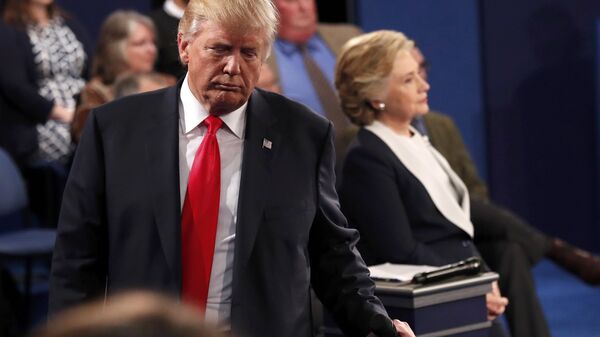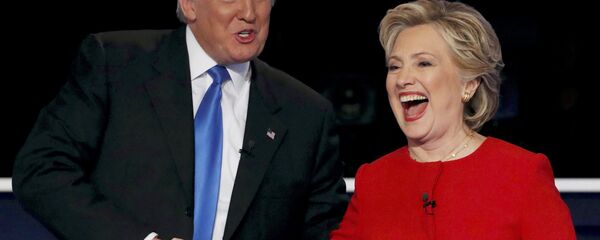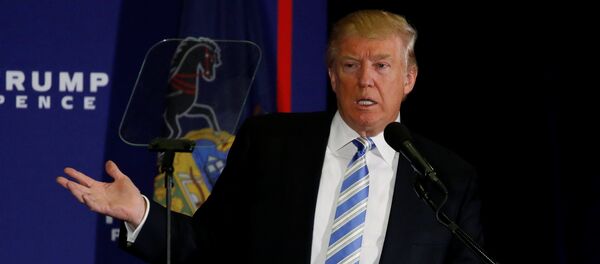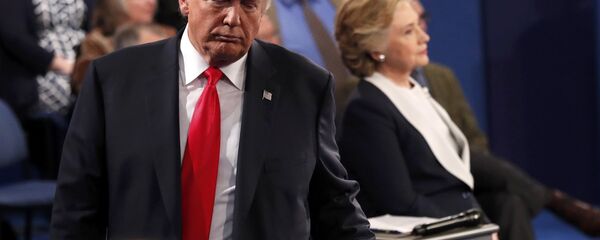WASHINGTON (Sputnik) — US Democratic presidential nominee Hillary Clinton is seen unfavorably by as many as 60 percent of voters, according to a recent NBC News poll, while her Republican rival Donald Trump’s negative rating stands at 58 percent.
"Both campaigns concluded that their candidate was so disliked by the public they had a much harder sales job getting to talking about issues," George Washington University Political Management Professor Christopher Arterton told Sputnik.
Clinton actually offers a variety of fairly complete policy plans on her website, Arterton claimed, but she failed to fully articulate details on the campaign trail because she was too focused on undercutting Trump.
Trump, for his part, Arterton continued, has a range of policies that touch on big ideas, including immigration, which is a complex and substantially important issue.
"But it is not one that he has proclaimed more than one or two sentences in terms of what he actually has in mind," Arterton said.
How Clinton and Trump’s unfavorability translates into final results at the polls is another matter, Arterton suggested, because Americans ultimately do not want to waste their vote.
The Strategy Group’s Bill Fuhry, a veteran political consultant, told Sputnik that both candidates have fallen short in explaining their plans, each for different reasons.
"I believe for Trump’s part, he doesn’t elaborate on any specifics because he is running the most non-traditional — and that’s being kind- campaign in modern American history," Fuhry said.
The New York billionaire’s appeal, Fuhry asserted, is rooted in radical anti-establishment sentiment and is a logical extension of the Tea Party and the right-wing of the Republican Party.
"To the extent he has elaborated on his plans, they’ve been vague, high altitude thoughts: Build a wall. Stop ISIS [Daesh]. Make America Great Again," Fuhry stated.
In many ways, Fuhry maintained, Trump’s candidacy reflects an ideological split within the Republican Party.
"A big part of their [Republican] base isn’t just holding their nose — they’re enthusiastically voting for him [Trump]," Fuhry noted.
"In many ways, he’s given her the freedom to work on her image rather than face the rigors of a real campaign," Fuhry said. "She’s a mediocre debater. But he steals the headlines. She has a stack of scandals, a few real, most invented. But he overplays his hand."
The former secretary of state is not short on policy proposals, given she tried to rewrite national health policy as First Lady, Fuhry pointed out, and is running a "superficial" campaign because she can get away with it.
Fuhry warned, however, that despite Trump’s flaws and the split within the Republican Party, the right wing does have another weapon.
"The Republican Party has the most powerful galvanizing force to rally around: Hillary Clinton," Fuhry concluded.
Despite rising unpopularity, Clinton holds a six point edge over Trump in the final national Monmouth University poll released on Monday.







